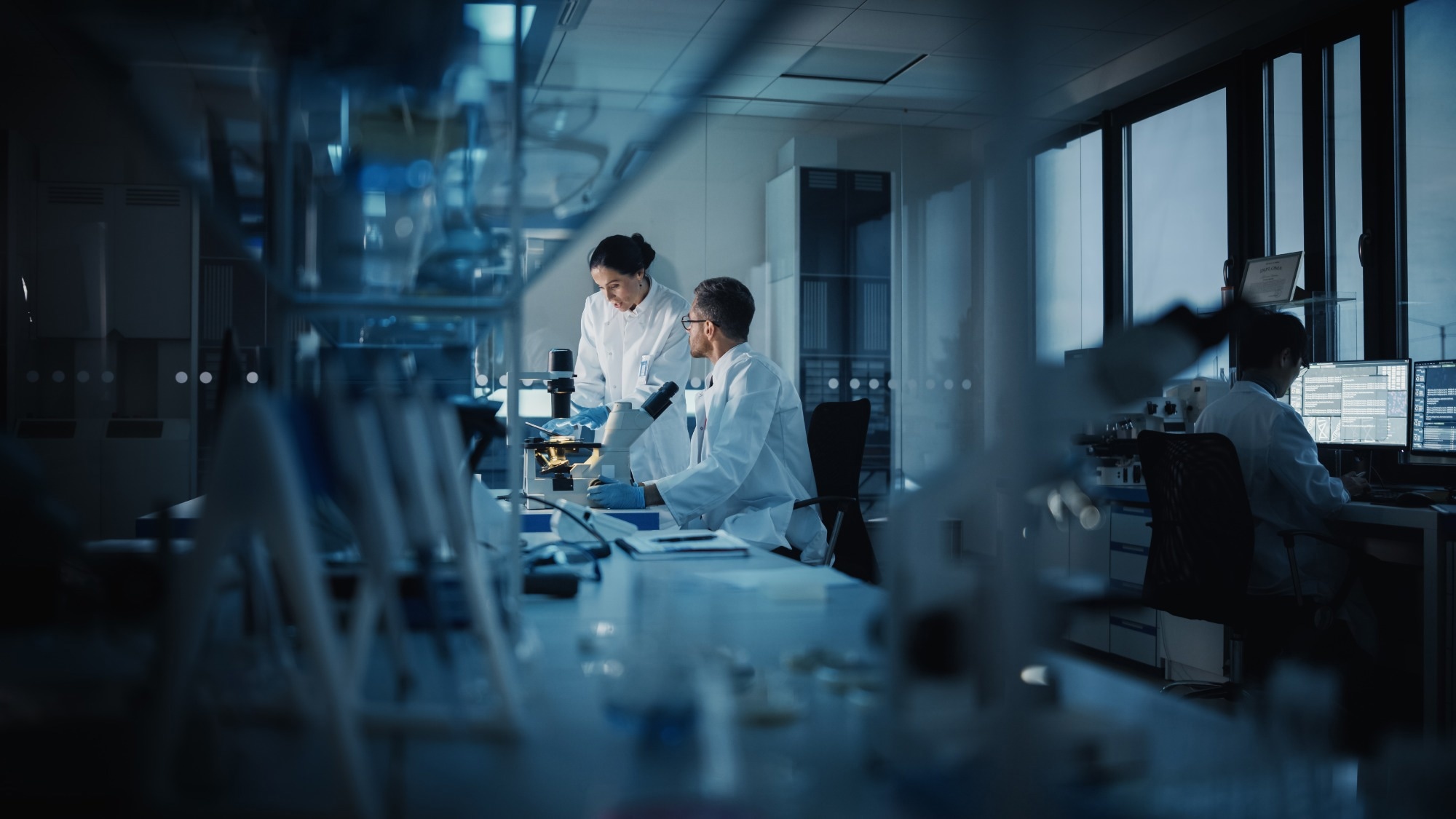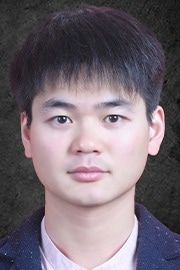
[ad_1]
On this interview, NewsMedical speaks with Chao Ma, Ph.D., a Analysis Assistant Professor at New York College Tandon College of Engineering. We first spoke to Dr. Ma at SLAS 2022; this dialog goals to delve into how this essential analysis has developed and the place it’s heading.
Forward of his presentation at SLAS 2024, Dr. Ma shares insights into his revolutionary “Leukemia-on-a-Chip” know-how, its affect on CAR T-cell remedy, and the way forward for personalised drugs in treating leukemia.
Firstly, please introduce your self and description your profession to this point. Extra particularly, please present us with an summary of the present analysis that you’re presenting at SLAS 2024.
Thanks for inviting me once more to debate our latest progress on “Leukemia-on-a-Chip” for CAR T cell remedy modeling and screening. My identify is Chao Ma. Presently, I’m a Analysis Assistant Professor within the Division of Mechanical and Aerospace Engineering at New York College Tandon College of Engineering.
Adoptive CD19 CAR (Chimeric Antigen Receptor) T-cell switch has emerged as a profitable FDA-approved remedy for B-cell acute lymphoblastic leukemia (B-ALL). Nonetheless, a excessive relapse price of 30~60% of CAR T-cell remedy stays a significant concern. The flexibility to pre-clinically assess the performance of CAR T-cells and dissect the CAR T-cell immunotherapy relapse mechanisms can be of nice significance however difficult with present animal fashions.
To fill the hole between animal research and medical translation, we herein established a 3D microfluidics-based, organotypic immunocompetent ‘Leukemia-on-a-Chip’ to ship human related outcomes of CAR T-cell immunotherapy earlier than medical administration, which is what I can be presenting at SLAS 2024.
This distinctive preclinical platform permits a brand new paradigm of clinical-on-a-trial, offering a exact, dependable, and multi-dimensional analysis of CAR T cell remedy, which might be readily prolonged to guage many different immunotherapies for various blood cancers in addition to stable tumors and past.
 Picture Credit score: orodenkoff/Shutterstock.com
Picture Credit score: orodenkoff/Shutterstock.com
Dr. Ma, since our earlier interview two years in the past, are you able to spotlight probably the most vital developments in your leukemia-on-a-chip know-how?
I might say increasing the applying of leukemia-on-a-chip know-how from typical chemotherapy to novel therapeutics, particularly in CAR T cell immunotherapy.
How have the developments in your analysis over the previous two years impacted the understanding of CAR T-cell immunotherapy relapse mechanisms?
We have now realized to mannequin completely different medical outcomes of CAR T cell therapies on-chip. As well as, we discovered that mobilizing of the immune system throughout CAR T cell activation could promote CAR T cell response on-chip.
Within the context of your latest findings, what are the present challenges in modeling leukemia resistance and relapse on the leukemia-on-a-chip?
The primary problem, I might say, is to appreciate long-term tradition that may allow the chronological examine of CAR T cells. Secondly, our system is at the moment constructed with industrial main cells and cell traces. Thus, we’ll want a pattern from a big cohort of sufferers to signify affected person heterogeneity and allow the precision of personalised remedy.
Lastly, how one can mannequin acquired remedy resistance to CAR T cell remedy on-chip stays fairly difficult. It necessitates each revolutionary technical growth and an in-depth understanding of leukemia pathobiology and T-cell immunology.
Are you able to talk about any novel insights your staff has found relating to molecular and mobile modifications throughout completely different CAR T-cell remedy medical outcomes?
As we mentioned in query 3, our research have modeled completely different medical outcomes of CAR T cell therapies on-chip. One utility we realized on-chip is that incorporation of IL-18 into CAR design can improve CAR T cell operate, which can enhance the end result of sufferers whose present CAR T cell merchandise possess hypofunctions.
As well as, mobilizing of the immune system throughout CAR T cell activation can promote CAR T cell response on-chip.
How has the bioengineered leukemia chip developed by way of its capability to mannequin and consider different immunotherapies for varied blood cancers and stable tumors?
We’re making use of this know-how to investigate CAR T cell remedy in acute myeloid leukemia (AML) within the lab and different CAR T cell remedy research in stable tumors resembling pancreatic ductal adenocarcinoma. We hope to share our progress with the SLAS group quickly, so hold your eye out.
 Picture Credit score: Gorodenkoff/Shutterstock.com
Picture Credit score: Gorodenkoff/Shutterstock.com
Since our final dialog, how has the combination of applied sciences like single-cell mRNA sequencing enhanced the capabilities and precision of your leukemia-on-a-chip system?
Sure, undoubtedly. We have been capable of apply scRNA-seq to validate the mobile similarities of our bioengineered bone marrow area of interest with its in vivo counterpart. As well as, we may map the molecular modifications of CAR T cell activation and people of area of interest cells.
Reflecting on the previous two years, what have been probably the most sudden or stunning findings out of your analysis utilizing the leukemia-on-a-chip?
We discovered that the incorporation of vascular community and immune setting into the leukemia-on-chip system permits the constructing of a trustworthy in vitro system, which may present a scientific testing of CAR T cell remedy starting from T cell extravasation, recognition of leukemia, immune activation, cytotoxicity, and killing to reciprocal interactions with bone marrow microenvironment.
How do you envision the function of lab-on-a-chip and organ-on-a-chip methods in the way forward for personalised drugs, particularly within the context of immunotherapy?
Sufferers can solely endure one kind of remedy at a time. Suppose we are able to incorporate affected person samples with our platform to develop patient-specific organ chip fashions. In that case, it would enable us to display screen a number of remedies in parallel to determine the optimum immunotherapy for given sufferers.
We’re collaborating with clinicians to check this system with affected person samples from medical trials. We hope to offer in vitro patient-specific methods that understand the so-called “clinical-trial-on-a-chip” idea.
Lastly, how do you imagine your work will contribute to the broader scientific and medical communities’ efforts in combatting leukemia and bettering affected person outcomes?
We imagine our analysis progress is not going to solely fill the technical hole in human illness modeling and remedy screening with bioengineering instruments of in vitro organotypic tissue fashions but additionally fill the information hole with a deeper understanding of CAR T cell remedy resistance and relapse mechanisms.
The place can readers discover extra info?
About Chao Ma, Ph.D.
 Chao Ma, Ph.D. is at the moment a Analysis Assistant Professor at New York College Tandon College of Engineering. His present researches focus totally on engineering Leukaemia-on-a-Chip platform to grasp resistance to chemotherapy and CAR T-cell immunotherapy. Dr. Ma obtained his B.S. in Biotechnology in 2013 and Ph.D. in Animal Biotechnology (Mobile Engineering) in 2017, each from Northwest A&F College.
Chao Ma, Ph.D. is at the moment a Analysis Assistant Professor at New York College Tandon College of Engineering. His present researches focus totally on engineering Leukaemia-on-a-Chip platform to grasp resistance to chemotherapy and CAR T-cell immunotherapy. Dr. Ma obtained his B.S. in Biotechnology in 2013 and Ph.D. in Animal Biotechnology (Mobile Engineering) in 2017, each from Northwest A&F College.
Throughout that point, he developed micro-engineering methods to assemble liver tissue in vitro for analyzing metabolism-related drug toxicity and bottom-up liver tissue engineering. Dr. Ma has been awarded nationally and internationally, resembling Nationwide Scholarship for Encouragement Award from School of Innovation and Experiment, NWAFU (2021), Nationwide Scholarship for Graduate College students Award from the Ministry of Training, China (2016), Excellent Graduates Award from School of Veterinary Drugs, NWAFU (2017), Irvington Postdoctoral Fellowship Award from Most cancers Analysis Institute (2021), DMM Convention Journey Grant Award from the Firm of Biologists (2021), Publish-Doctoral Researcher Journey Award from BMES-CMBE (2022), in addition to Tony B. Tutorial Award from SLAS (2022).
Dr. Ma has emerged as an knowledgeable within the microfluidic Organ-on-a-Chip subject with invites to current his findings at native, nationwide, and worldwide conferences (WPC, BMES, ASME, CMBE, and SLAS). Dr. Ma can be a co-inventor on two patents involving engineering strategies for tissue and tumor modeling for superior remedy and is the writer of quite a few peer-reviewed publications.
The overarching analysis targets for Dr. Ma are to develop and leverage a multidisciplinary method that mixes engineering with biology and drugs for tissue engineering, illness modeling, and remedy screening, which goals to positively affect human healthcare and wellness.
[ad_2]